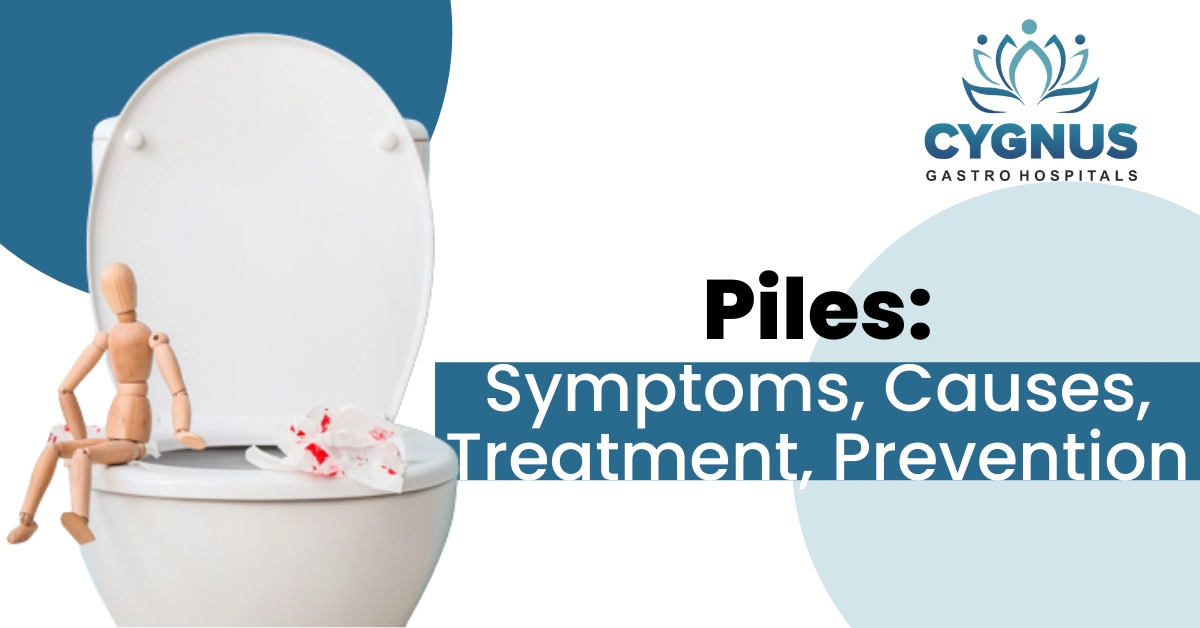
Piles or hemorrhoids – the medical condition in which the anal veins in the lower rectum region swell thereby causing irritation and discomfort. When this happens in the rectum, it is called internal hemorrhoids and when it happens around the anus it is called external hemorrhoids. The swelling in the veins can cause inflammation in the nearby tissue. It is a very common problem affecting almost 75% of adults at some point in their lives.
Types of Hemorrhoids-
There are basically two types of hemorrhoids:
- External Hemorrhoids: hemorrhoids that occur on the external and visible part of the anus are called external hemorrhoids. They can be easily diagnosed and are less common than internal hemorrhoids. External hemorrhoids cause more discomfort and can be very painful when blood is clotted. Thrombosed external piles are the most painful type of piles, having blood clots inside the lumps, thereby causing immense pain.
- Internal Hemorrhoids: This type of Haemorrhoid is more common than the external one. It is caused because of the swelling of the veins under the mucus membrane of the rectum. It usually occurs well inside the rectum and is not externally visible. Because of the less pain-sensitive nerves inside the anus, internal hemorrhoids are less painful.
Internal Piles are again classified into four grades
- Grade 1- when the internal hemorrhoids do not protrude out of the anus at all
- Grade 2- internal hemorrhoids that protrude out of the anus during straining but return back to the rectum after straining to get over
- Grade 3- internal hemorrhoids that protrude externally during straining but instead of returning on their own need manual assistance
- Grade 4- hemorrhoids remain protruded outside the anus
Causes of Hemorrhoids:
The exact cause of hemorrhoids is unknown. It is widely accepted that the increased internal pressure in the anal region is one of the biggest causes of hemorrhoids. The increased pressure causes an enlargement in the arteries of the anal region.
The anal pressure can increase during pregnancy, heavyweight workouts, excessive straining in the toilet, obesity, or sitting for long hours. Research is being done on the identification of hereditary factors that cause hemorrhoids. Research shows low fiber diet and less water intake can also cause hemorrhoids. That’s why doctors advise increasing fibre and fluid intake during treatment.
Prevention of Hemorrhoids:
The basic way to prevent hemorrhoids is to keep the abdominal pressure in check and keep the stool soft causing easy evacuation without excessive straining. Also, building the following habits can also help in hemorrhoid prevention.
- Increasing Fiber Intake: By eating fibre-rich foods like vegetables, fruits, and whole grains one can easily prevent constipation, making the stool soft and bulky. This prevents straining while passing stools.
- Increasing Fluid Intake: Fluids play a major role in keeping the stool soft. Dring 6 to 8 litres of fluids daily to meet the daily fluid requirements.
- Don’t Strain: Straining causes hemorrhoids. Straining increases the abdominal pressure in the anal region leading to swelling in the anal veins hence causing Piles.
- Exercise Moderately: Exercise is necessary for keeping the body weight in check but one should exercise in moderation. Lifting heavy weights constantly for a prolonged period of time can cause hemorrhoids.
- Don’t Sit for Long periods: Sitting for a longer period of time, especially in the toilets can significantly increase the anal pressure. Try avoiding this.
- Supplement Fiber: Over-the-counter fibre supplements, such as psyllium (Metamucil) or methylcellulose (Citrucel), improve overall symptoms and bleeding from hemorrhoids and are recommended for those who don’t get the daily recommended amount of fibre.
Diagnosis of Hemorrhoids:
External hemorrhoids are externally visible and hence can be easily diagnosed visually. But, internal hemorrhoids because being present inside the rectum require careful diagnostic procedures. Internal hemorrhoids can be diagnosed by advanced procedures like colonoscopy, endoscopy, etc. With the best Piles treatment in Hyderabad, Cygnus ensures the best diagnosis as well.
Treatment of Hemorrhoids:
Treatment of hemorrhoids ranges from home remedies to relieve some swelling and pain to advance medical procedures and surgeries. Cygnus institute of gastroenterology ensures the best tre3of Piles in Hyderabad.
Advanced Medical Procedures:
- External Thrombosed Hemorrhoid Surgery: It is the surgical removal of thrombosed hemorrhoids. The affected area is cleaned and then numbed with the help of local anesthesia. After which the surgeon surgically removes the hemorrhoids. The wounds heal in 3 to 4 weeks.
- Rubber Band Litigation: The process of cutting off the blood supply of hemorrhoids using rubber bands results in withering away of it within a week. In some cases, this can cause more complications.
- Sclerotherapy: This is less effective than the rubber band method. In this procedure, a chemical is injected into the hemorrhoids to cause shrinkage.
- Hemorrhoidectomy: With the help of local, spinal, or general anesthesia the bleeding hemorrhoid tissues are surgically removed. It is one of the most effective ways to treat severe hemorrhoids.
- Hemorrhoid Stapling: Also known as stapled hemorrhoidopexy is the procedure of stapling the hemorrhoids to cut off blood flow. It is less painful than hemorrhoidectomy.
Conclusion:
Hemorrhoid is a common disease affecting a significant fraction of adults but it is curable and preventable by following the above discussed healthy habits and treatments. The treatment procedures range from minimally invasive to surgeries. The medical experts at Cygnus are highly experienced in tackling such issues, providing the best piles treatment in Hyderabad.


